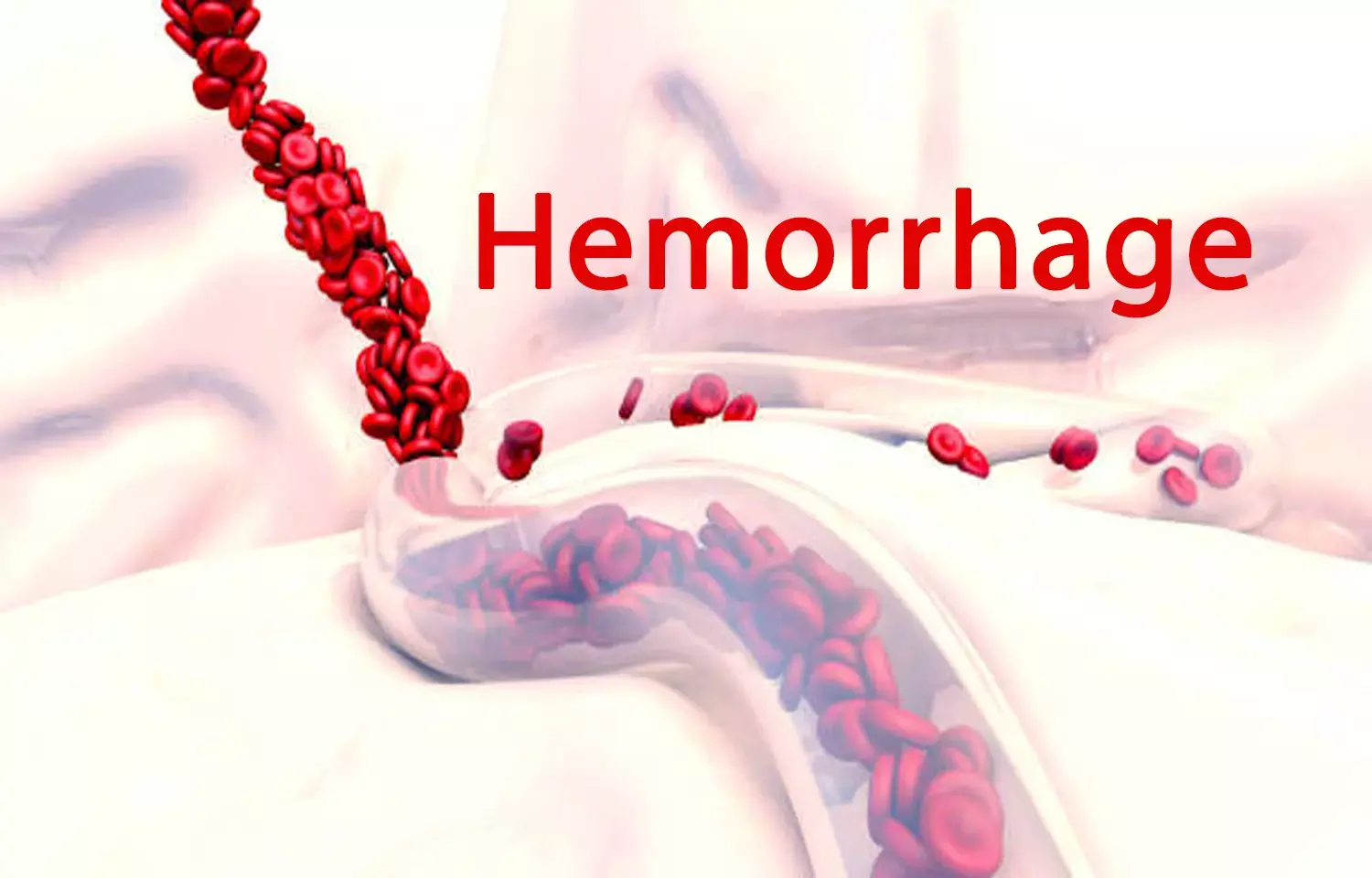- Home
- Medical news & Guidelines
- Anesthesiology
- Cardiology and CTVS
- Critical Care
- Dentistry
- Dermatology
- Diabetes and Endocrinology
- ENT
- Gastroenterology
- Medicine
- Nephrology
- Neurology
- Obstretics-Gynaecology
- Oncology
- Ophthalmology
- Orthopaedics
- Pediatrics-Neonatology
- Psychiatry
- Pulmonology
- Radiology
- Surgery
- Urology
- Laboratory Medicine
- Diet
- Nursing
- Paramedical
- Physiotherapy
- Health news
- Fact Check
- Bone Health Fact Check
- Brain Health Fact Check
- Cancer Related Fact Check
- Child Care Fact Check
- Dental and oral health fact check
- Diabetes and metabolic health fact check
- Diet and Nutrition Fact Check
- Eye and ENT Care Fact Check
- Fitness fact check
- Gut health fact check
- Heart health fact check
- Kidney health fact check
- Medical education fact check
- Men's health fact check
- Respiratory fact check
- Skin and hair care fact check
- Vaccine and Immunization fact check
- Women's health fact check
- AYUSH
- State News
- Andaman and Nicobar Islands
- Andhra Pradesh
- Arunachal Pradesh
- Assam
- Bihar
- Chandigarh
- Chattisgarh
- Dadra and Nagar Haveli
- Daman and Diu
- Delhi
- Goa
- Gujarat
- Haryana
- Himachal Pradesh
- Jammu & Kashmir
- Jharkhand
- Karnataka
- Kerala
- Ladakh
- Lakshadweep
- Madhya Pradesh
- Maharashtra
- Manipur
- Meghalaya
- Mizoram
- Nagaland
- Odisha
- Puducherry
- Punjab
- Rajasthan
- Sikkim
- Tamil Nadu
- Telangana
- Tripura
- Uttar Pradesh
- Uttrakhand
- West Bengal
- Medical Education
- Industry
Long-term use of Statin significantly lowers intracerebral hemorrhage risk

Statin usage was linked to a decreased incidence of intracerebral hemorrhage (ICH), especially when the course of therapy was prolonged, says an article published in Neurology Journal.
It's unclear whether taking statins causes intracerebral bleeding. In order to determine if the relationship between long-term statin exposure and ICH risk may change for distinct ICH sites, Nils Jensen Boe and colleagues undertook this investigation.
Danish national registry links were used for this investigation. All first-ever instances of ICH in people older than 55 between 2009 and 2018 were meticulously recorded in the Southern Denmark Region (population: 1.2 million). Patients with confirmed diagnoses in their medical records were divided into groups according to whether they had a lobar or non-lobar ICH, and they were matched in terms of their age, sex, and year to general population controls. To determine past statin and other pharmaceutical usage, which was categorized for recency, duration, and severity, a national prescription record was employed. We generated adjusted odds ratios (aORs) and associated 95% Confidence Intervals (CIs) for the risk of lobar and non-lobar ICH using conditional logistic regression adjusted for possible confounders.
The key findings of this study were:
There were 1,175 patients with non-lobar ICH, who we matched to 46,755 controls, and 989 patients with lobar ICH, who we identified and matched to 39,500 controls.
There was a link between current statin use and a decreased risk of lobar and non-lobar ICH.
Additionally, longer statin usage was linked to a decreased incidence of lobar and non-lobar ICH.
The major estimates for low-medium intensity therapy were similar to the estimates stratified by statin intensity; the connection with high intensity therapy was unrelated.
In conclusion the Authors found that, adults in their middle years and older ones who took statins had decreased risks for both lobar and non-lobar intracerebral hemorrhage, and the advantages grew over time.
Reference:
Boe, N. J., Hald, S. M., Jensen, M. M., Bojsen, J. A., Elhakim, M. T., Florisson, S., Saleh, A., Clausen, A., Möller, S., Gråe Harbo, F. S., Graumann, O., Hallas, J., García Rodríguez, L. A., Al-Shahi Salman, R., Goldstein, L. B., & Gaist, D. (2022). Association Between Statin Use and Intracerebral Hemorrhage Location: A Nested Case-Control Registry Study. In Neurology (p. 10.1212/WNL.0000000000201664). Ovid Technologies (Wolters Kluwer Health). https://doi.org/10.1212/wnl.0000000000201664
Neuroscience Masters graduate
Jacinthlyn Sylvia, a Neuroscience Master's graduate from Chennai has worked extensively in deciphering the neurobiology of cognition and motor control in aging. She also has spread-out exposure to Neurosurgery from her Bachelor’s. She is currently involved in active Neuro-Oncology research. She is an upcoming neuroscientist with a fiery passion for writing. Her news cover at Medical Dialogues feature recent discoveries and updates from the healthcare and biomedical research fields. She can be reached at editorial@medicaldialogues.in
Dr Kamal Kant Kohli-MBBS, DTCD- a chest specialist with more than 30 years of practice and a flair for writing clinical articles, Dr Kamal Kant Kohli joined Medical Dialogues as a Chief Editor of Medical News. Besides writing articles, as an editor, he proofreads and verifies all the medical content published on Medical Dialogues including those coming from journals, studies,medical conferences,guidelines etc. Email: drkohli@medicaldialogues.in. Contact no. 011-43720751


